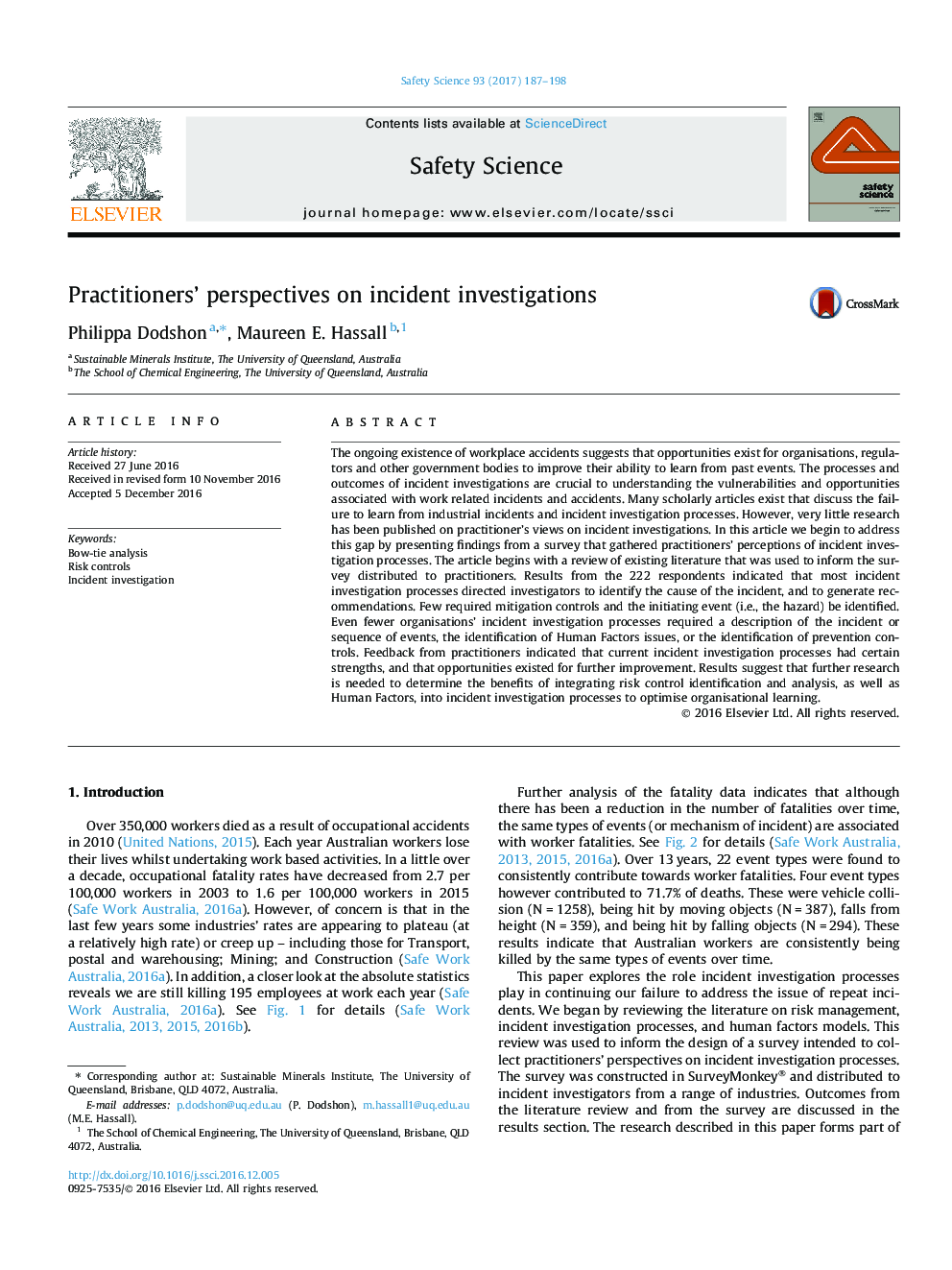| Article ID | Journal | Published Year | Pages | File Type |
|---|---|---|---|---|
| 4981289 | Safety Science | 2017 | 12 Pages |
Abstract
The ongoing existence of workplace accidents suggests that opportunities exist for organisations, regulators and other government bodies to improve their ability to learn from past events. The processes and outcomes of incident investigations are crucial to understanding the vulnerabilities and opportunities associated with work related incidents and accidents. Many scholarly articles exist that discuss the failure to learn from industrial incidents and incident investigation processes. However, very little research has been published on practitioner's views on incident investigations. In this article we begin to address this gap by presenting findings from a survey that gathered practitioners' perceptions of incident investigation processes. The article begins with a review of existing literature that was used to inform the survey distributed to practitioners. Results from the 222 respondents indicated that most incident investigation processes directed investigators to identify the cause of the incident, and to generate recommendations. Few required mitigation controls and the initiating event (i.e., the hazard) be identified. Even fewer organisations' incident investigation processes required a description of the incident or sequence of events, the identification of Human Factors issues, or the identification of prevention controls. Feedback from practitioners indicated that current incident investigation processes had certain strengths, and that opportunities existed for further improvement. Results suggest that further research is needed to determine the benefits of integrating risk control identification and analysis, as well as Human Factors, into incident investigation processes to optimise organisational learning.
Related Topics
Physical Sciences and Engineering
Chemical Engineering
Chemical Health and Safety
Authors
Philippa Dodshon, Maureen E. Hassall,
